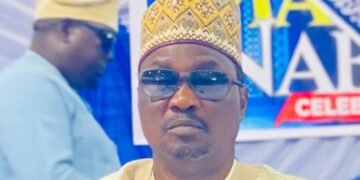The Oyo State Executive Council, presided over by the Acting Governor, Barr. Abdulraheem Adebayo Lawal, has approved a series of multi-billion-naira projects across Ibadan, Ibarapa, and Oke Ogun zones.
At its meeting held on Wednesday, the Council gave the green light for the reconstruction, rehabilitation, and completion of key road projects as well as other infrastructure works, totaling more than ₦114 billion.
Among the projects approved are:
Reconstruction/rehabilitation of the 13.6 km Ojoo Interchange–IITA–Moniya Junction–Akinyele Interchange Road with spurs to New Oyo Expressway, Ibadan, at a cost of ₦63.6 billion. The six-lane dual carriageway will be completed in 18 months.
Reconstruction/rehabilitation of the 30 km Okaka Junction–Otu–Igbojaiye–KAP Film Village Road, including bridges over Otu and Ofiki Rivers, for ₦26.4 billion, also with an 18-month timeline.
Dualisation of the 6.2 km Ajia Junction (Ibadan-Ife Interchange)–Nigerian Air Force Base Road at a cost of ₦17.1 billion, to be completed within 12 months.
Reconstruction of Isaba–Ogundoyin Road, Eruwa (0.75 km) and Lanlate Garage Junction–Adeseun Ogundoyin Polytechnic–Oke Ola Junction Road, Eruwa (1.9 km), costing ₦4.1 billion, with a 12-month duration.
Completion of the 12 km Apete–Awotan–Akufo Road and expansion to Akufo Farm Settlement Road (2.2 km), at ₦1.9 billion.
Limited patching of selected roads in Ibadan metropolis, including thermoplastic road marking and kerb painting, at ₦444.7 million.
Planting of economic trees on both sides of the 32 km (South-East Wing) of the 110 km Rashidi Ladoja Circular Road, Ibadan, at ₦108 million.
Beyond road infrastructure, the Council also approved ₦110 million for camping and hosting of Nigeria’s under-20 female national football team in Ibadan, ahead of their Women’s World Cup qualifying match against Rwanda.
While the new projects have been welcomed as significant investments in road infrastructure and sports development, observers note that Oyo and Ogbomoso zones were left out, raising concerns among stakeholders in the two regions about equitable distribution of state projects.












